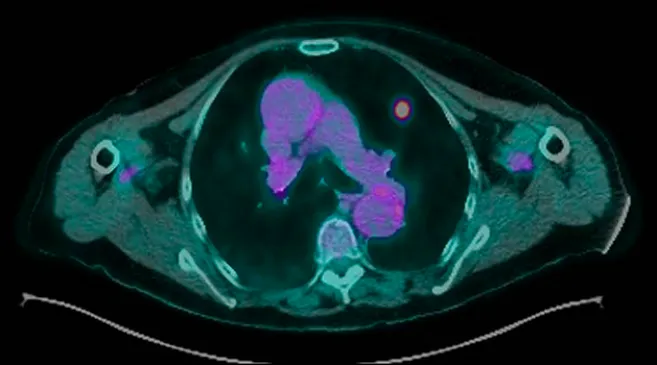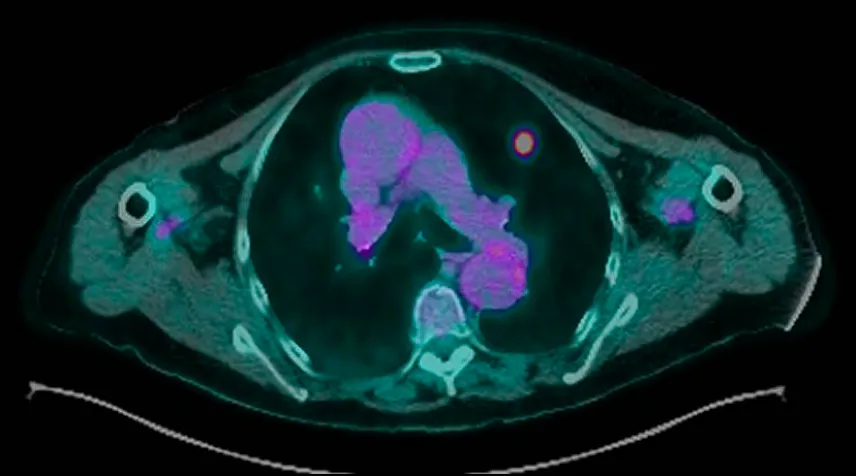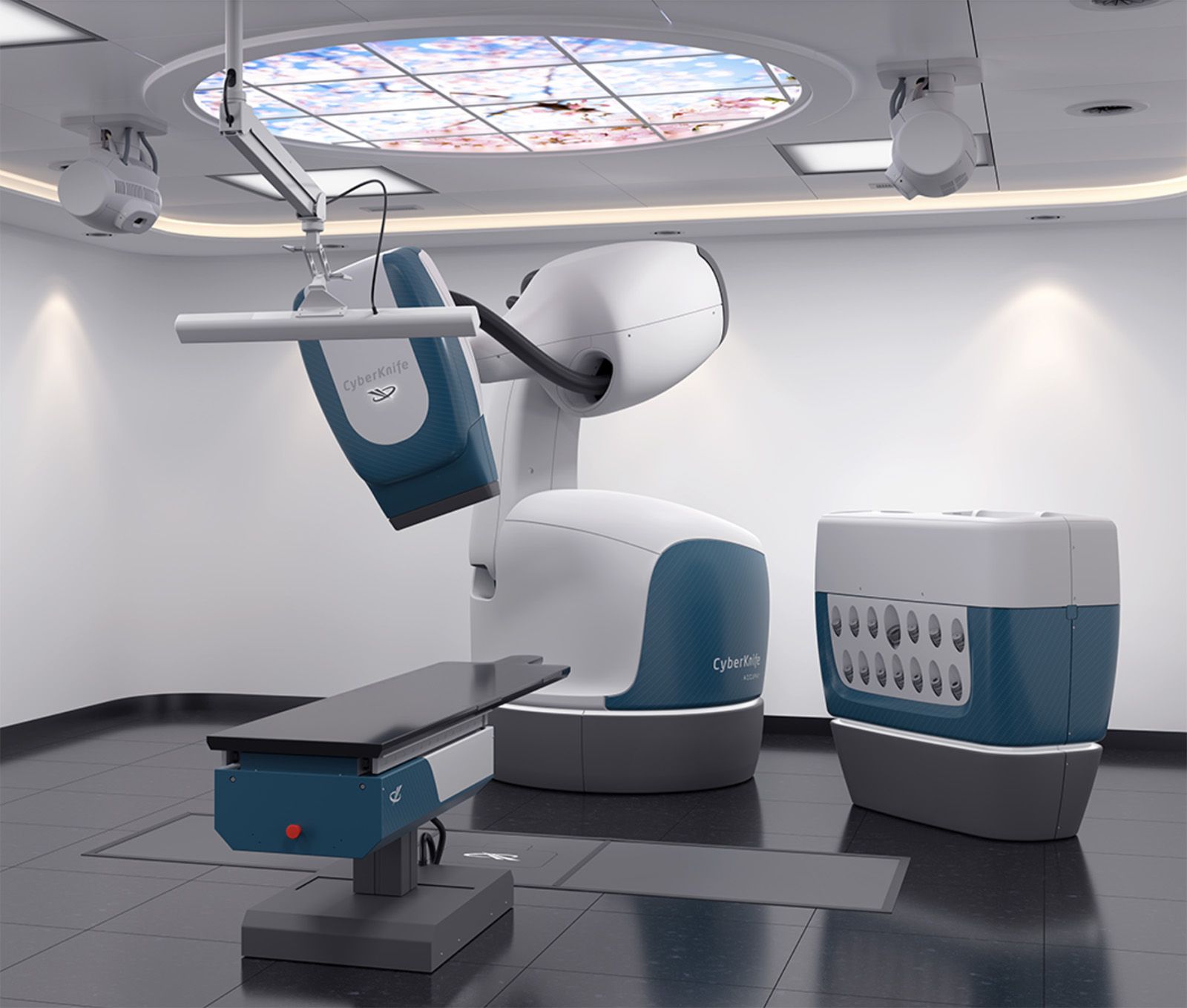Early Stage Lung Cancer: Expert Care with Dr Wilson
Learn about early stage lung cancer, its symptoms, and cutting-edge treatments like SABR. Discover how Dr James Wilson offers expert, personalised care with high cure rates in London.


Jump to:
- What is Early Stage Lung Cancer?
- Importance of Early Detection
- Symptoms of Early-Stage Lung Cancer
- Common Symptoms
- When to Seek Medical Advice
- Causes and Risk Factors
- Smoking and Lung Cancer
- Other Risk Factors
- Environmental Exposures
- Genetic Factors
- Diagnosis and Staging
- Diagnostic Tests
- Medical history and physical examination
- Bronchoscopy
- Biopsies and tests
- Imaging tests
- Staging Early Stage Lung Cancer
- Stage 1: Early stage
- Stage 2: Local spread
- Treatment Options for Early Stage Lung Cancer
- Stereotactic Ablative Radiotherapy (SABR)
- Chemotherapy and Immunotherapy
- Dr. James Wilson: Your Expert in Early Stage Lung Cancer Care
- Why Choose Dr. Wilson?
- Advanced Training and Credentials
- Access to Cutting-Edge Technologies
- Personalised Treatment Plans
- High Cure Rates with SABR
- Proton Beam Therapy
- Minimally Invasive Options
- Patient-Centered Approach
- Compassionate Care
- Virtual Consultations for UK-Wide Access
- Prognosis and Survival Rates
- Factors Affecting Prognosis
- High Survival Rates for Early Stage
- Living with Early-Stage Lung Cancer
- Managing Treatment Side Effects
- Emotional and Psychological Support
- Support and Resources in the UK
- NHS and Local Support Groups
- Accessing Cancer Charities
- Prevention and Screening
- Reducing Lung Cancer Risk
- Latest Research and Developments
- Advances in Early Stage Treatment
- UK-Based Clinical Trials
- Frequently Asked Questions About Early Stage Lung Cancer
- What are the symptoms of early stage lung cancer?
- What treatments are available for early stage lung cancer?
- What is the prognosis for early-stage lung cancer?
- How can Dr. Wilson help with my diagnosis?
- Are there screening programs for lung cancer in the UK?
- Book Your Consultation with Dr James Wilson Today
What is Early Stage Lung Cancer?
In the UK, early-stage lung cancer typically refers to Stage 1, where the cancer is confined to the lung with a tumour not exceeding 4 cm, and Stage 2, where the cancer may be larger or has spread to nearby lymph nodes or other parts of the lung, but not beyond the chest.
Importance of Early Detection
Early detection of lung cancer is crucial because it significantly improves treatment outcomes and lung cancer survival rates. Lung cancer screening programmes are helping more people than ever receive a lung cancer diagnosis early, long before it is in the advanced stages.
Non-small cell lung cancer (NSCLC) is the most common type of lung cancer. NSCLC grows slowly; it can spread to other parts of the body before you notice any symptoms. That’s why early detection and treatment are so important. The most common types of NSCLC are adenocarcinoma and squamous cell carcinoma. Before lung cancer screening, most patients had advanced non-small cell lung cancer at the time of diagnosis.
Lung cancer treatments like surgery, radiotherapy, immunotherapy, targeted therapies, and clinical trials—or different combinations of these approaches—are more successful when used in the early stages.
Symptoms of Early-Stage Lung Cancer
Common Symptoms
Common early-stage lung cancer symptoms, according to Macmillan Cancer Support, include:
-
a new cough, or persistent cough, or worsening cough
-
a serious and/or returning chest infection
-
coughing up blood
-
shortness of breath
-
chest pain
-
ongoing shoulder pain
-
unexplained weight loss
-
persistent fatigue
A challenging thing about lung cancer when it is at an early-stage is that it might not cause any early signs. Sometimes the common symptoms of lung cancer only appear when the lung cancer spreads e.g. loss of appetite. Lung cancer screening is essential in helping those at risk of lung cancer to get an early diagnosis. For example, breathlessness caused by a pleural effusion (fluid around the lung) would be considered a sign of advanced non-small cell lung cancer.
When to Seek Medical Advice
You should see your doctor immediately if you notice a change that isn't normal for you or if you have any possible signs and symptoms of early lung cancer. Lung cancer is a type of cancer that can change quickly, so don't delay in seeking help if you are concerned.
Causes and Risk Factors
Smoking and Lung Cancer
In the UK, the leading cause of lung cancer is smoking, accounting for over 70% of cases.
If you have smoked, there is no judgment. As your cancer doctor, I am committed to seeing you quickly and providing a personalised, lung cancer treatment plan that includes the latest targeted lung cancer treatment options.
Other Risk Factors
Environmental Exposures
NHS research indicates that being exposed to specific chemicals and substances may elevate your risk of developing lung cancer. These risk factors include:
-
arsenic
-
asbestos
-
beryllium
-
cadmium
-
coal and coke fumes
-
silica
-
nickel
-
diesel fumes
Additionally, radon is a known risk factor. Inhaling radon can harm your lungs, and potentially causes lung cancer, especially if you smoke.
Genetic Factors
Several genetic factors can increase the risk of lung cancer. These include both inherited mutations, often referred to as germline mutations, and those that individuals may acquire over their lifetime, known as somatic mutations.
The National Institute for Health notes that approximately 8% of lung cancers are inherited or occur as a result of an inherited genetic (germline) predisposition.
It's important to mention that some cancer-types are associated with genetic drivers e.g. EGFR mutations. These mutations occur just in the cancer cells and are not inherited and can't be passed on.
Diagnosis and Staging
Diagnostic Tests
Medical history and physical examination
Your doctor will ask about your medical history and conduct an examination to understand your symptoms and pinpoint potential risk factors, including family history and previous respiratory conditions.
If the results of your history and physical exam suggest you might have lung cancer, your healthcare professional will recommend more tests. These could include lung cancer screening, such as a bronchoscopy, imaging tests, and/or biopsies.
Bronchoscopy
Bronchoscopy is a minimally invasive procedure used to diagnose issues pertaining to the lungs or airways. Healthcare professionals use a bronchoscope to examine the windpipe and lungs, they may also obtain a tissue sample so that the lung cancer cells can be tested.
Biopsies and tests
Lung cancer cells may be taken via a needle or surgical procedure (needle biopsy), fluid can be extracted from the lung (thoracentesis), or lung secretions (mucus coughed up from the lungs) can be analysed. The selection of tests depends on the different types of lung cancer being tested for. We often do a lung biopsy using CT-guidance.
Imaging tests
Imaging tests, such as chest X-rays, magnetic resonance imaging (MRI scan), or computed tomography (CT scan), create pictures of the inside of your body. Imaging tests may be conducted for a number of reasons, both before and after a lung cancer diagnosis or following lung cancer treatment. A PET scan (positron emission tomography) will confirm that we have identified your cancer at its earliest stage.

Staging Early Stage Lung Cancer
In the UK, early-stage lung cancer typically denotes Stage 1 or Stage 2.
The results of your tests will be assessed using a staging system. When I look at staging, I use the TNM system. I consider the size of the tumour and whether it has spread to nearby areas (lymph node) or other parts of the body (e.g. adrenal gland or liver). With this information, I can then select the best treatment options for you.
Stage 1: Early stage
Stage 1 lung cancer means the lung cancer is small and considered early-stage lung cancer. It hasn’t spread to lymph nodes or other distant organs.
Stage 2: Local spread
Stage 2 lung cancer, typically called early-stage lung cancer, means the lung cancer has grown larger or spread or progressed to nearby lymph nodes.
Treatment Options for Early Stage Lung Cancer
Stereotactic Ablative Radiotherapy (SABR)
Stereotactic radiotherapy (SABR) is a precise, high-dose radiation therapy for early-stage lung cancer. It’s highly effective, and my personal cure rate is 90%. It is a highly effective, non-invasive alternative to surgery or radiofrequency ablation.
SABR usually has fewer side effects, which helps maintain your quality of life and overall health while reducing hospital visits compared to standard radiotherapy.
Generally, your SABR treatment plan consists of 3-5 outpatient sessions, and sometimes only one session is needed.

Chemotherapy and Immunotherapy
Chemotherapy works by killing rapidly dividing cancerous cells throughout the body.
Immunotherapy is one of the most exciting advancements in lung cancer treatment because it offers a targeted and effective treatment approach by boosting the immune system’s ability to recognise and attack cancer cells.
When necessary, I might integrate immunotherapy with other neoadjuvant or adjuvant chemotherapy approaches to enhance the effectiveness of treating your lung cancer and improving your overall health. This is often before or after surgical removal of the primary tumour.
Dr. James Wilson: Your Expert in Early Stage Lung Cancer Care
Why Choose Dr. Wilson?
I am a consultant clinical oncologist (more commonly known as a cancer doctor) - I am an expert in treating cancer and caring for cancer patients.
I specialise in state-of-the-art lung cancer treatments that offer powerful alternatives to surgery and traditional radiotherapy. As a leading UK cancer doctor, I am now able to offer more people with lung cancer treatments the potential for a cure than ever before. I observe clinical practice guidelines, but also use the best facilities to deliver the best treatment and access new treatments as soon as they become available. I follow international best practice, so follow UK clinical practice guidelines as well as applying the American Cancer Society and National Cancer Institute protocols.
Advanced Training and Credentials
Dr. James Wilson - Consultant in Clinical Oncology.
MBBS (Hons with Distinction), DPhil (a PhD from the University of Oxford), Member of the Royal College of Physicians and Fellow of the Royal College of Radiologists.
Having trained with world-leading universities and cancer centres, including the University of Oxford, the Royal Marsden Hospital, and Massachusetts General Hospital, I have established a reputation as a highly respected oncologist and trusted clinical lead in managing complex cancer cases.
I dedicate my practice to offering progressive skin cancer and lung cancer treatments and care.
Access to Cutting-Edge Technologies
I have access to cutting-edge treatments like proton beam therapy (PBT) and stereotactic radiotherapy (SABR), including the MR-linac and CyberKnife, which may offer curative lung cancer treatment options not available elsewhere.
As one of the few UK cancer doctors with access to all of the new lung cancer treatments, I can provide curative lung cancer options to individuals who might only be offered palliative care elsewhere.
Personalised Treatment Plans
We’ll define your treatment plan together – whether our goal is a cure or to enhance the quality of your life. Please be assured that I can access any lung cancer treatment of proven benefit for you to ensure you receive the best possible care.
High Cure Rates with SABR
SABR (Stereotactic Ablative Radiotherapy) achieves high cure rates for early-stage lung cancer by delivering a precise, high dose of radiation directly to the lung tumour.
Proton Beam Therapy
Proton beam therapy (PBT) is a specialised radiotherapy that targets lung tumors more accurately, reducing radiation to essential organs and tissues.PBT is especially beneficial for young people and patients with treatment risk factors.
Minimally Invasive Options
I specialise in advanced therapies providing powerful lung cancer treatment alternatives to surgery and radiofrequency ablation, tailored to the different lung cancer stages.
My cutting-edge early-stage lung cancer treatments include proton beam therapy (PBT) and stereotactic radiotherapy (SABR), such as MR-linac and CyberKnife.
Patient-Centered Approach
Compassionate Care
My exceptional clinical team and I are here to provide attentive, friendly, and reassuring care that is fully focused on your lung cancer treatment needs.
I’m proud to lead a skilled and dedicated clinical team focused on every aspect of your lung cancer treatment and care. As soon as your lung cancer treatment begins, you'll have 24-hour telephone support, ensuring you’re never alone.
Virtual Consultations for UK-Wide Access
To accommodate those coming from afar, I offer initial video consultations to promptly and affordably develop personalised care and treatment plans that can be implemented quickly. I can also arrange accommodation near my London practices if needed.
Prognosis and Survival Rates
Factors Affecting Prognosis
Multiple factors impact the prognosis of early lung cancer, including the cancer stage at diagnosis, the patient's overall health, and particular genetic changes in the cancer cells. Additionally, elements like smoking, age, and gender also play a role.
High Survival Rates for Early Stage
The extent of the cancer, the type of lung cancer (non-small cell or small cell), the patient's overall health, and the effectiveness of treatment all play a role in lung cancer survival rates.
According to Cancer Research UK, nearly 65% of individuals with stage 1 lung cancer will survive their cancer for 5 years or more, while about 40% of those with stage 2 lung cancer will survive for the same duration.
From my personal figures, 90% of the patients I have treated with SABR for early-stage lung cancer were cured by the treatment.
It's important to remember that whatever your lung cancer diagnosis, there is always something I can do to help.
Living with Early-Stage Lung Cancer
Managing Treatment Side Effects
Regardless of your treatment plan, I am here to ensure that your lung cancer treatment causes the least disruption to your well-being and to support you in managing any side effects quickly and effectively, all while prioritising your well-being. I'll plan your stereotactic radiotherapy to minimise the radiation dose to the heart, normal lungs, and chest wall to minimise the chance of side effects.
Emotional and Psychological Support
My exceptional clinical team of health professionals and I are here to provide attentive, friendly, reassuring and compassionate care that is fully focused on your lung cancer treatment needs. Receiving a cancer diagnosis can affect your mental health and it important we get you the support you need.
Support and Resources in the UK
NHS and Local Support Groups
The NHS website and Macmillan Cancer Support can provide information on lung cancer support groups and resources, including information, support centres, and self-help groups.
Accessing Cancer Charities
In the UK, major lung cancer charities include:
Roy Castle Lung Cancer Foundation: lungcancerhelp@roycastle.org
Macmillan Cancer Support: www.macmillan.org.uk
Cancer Research UK: www.cancerresearchuk.org
Asthma + Lung UK: www.asthmaandlung.org.uk
Prevention and Screening
Low-Dose Computed Tomography (LDCT) scans can help identify early-stage lung cancer when it's often more treatable. Ask your GP for more information if you believe you are at high risk of developing lung cancer.
Reducing Lung Cancer Risk
To reduce your lung cancer risk, prioritise quitting smoking. Avoid secondhand smoke, radon gas, and workplace carcinogens. A healthy diet rich in fruits and vegetables, plus regular exercise, can improve overall health and lower your lung cancer risk.
Latest Research and Developments
Advances in Early Stage Treatment
Advances in early-stage lung cancer treatment involve less invasive surgical techniques such as video-assisted thoracoscopic surgery (VATS) and stereotactic body radiotherapy (SBRT), alongside the application of neoadjuvant (before primary lung cancer treatment) and adjuvant immunotherapy (after primary lung cancer treatment) in combination with chemotherapy and targeted approaches.
UK-Based Clinical Trials
I will keep you informed about all clinical trials that may be available and discuss their suitability as treatment options for you.
Should you wish to know more, Cancer Research UK offers a comprehensive database of the latest and ongoing clinical trials for the treatment of early-stage lung cancer.
www.cancerresearchuk.org/about-cancer/lung-cancer/research-clinical-trials
Frequently Asked Questions About Early Stage Lung Cancer
What are the symptoms of early stage lung cancer?
In early stages, lung cancer often presents with no noticeable symptoms, but a persistent cough that doesn't go away after 3 weeks, or a cough that gets worse over time, is a key sign to look for.
Other potential early-stage lung cancer symptoms include coughing up blood or rust-colored phlegm, chest pain that worsens with breathing or coughing, and shortness of breath
What treatments are available for early stage lung cancer?
For early-stage lung cancer, common treatment options include surgery, targeted cancer therapies, radiotherapy, and chemotherapy.
What is the prognosis for early-stage lung cancer?
The prognosis for early-stage lung cancer in the UK is generally very good. Early detection and treatment significantly improve survival rates. Maintaining good general health will mean that all treatment options would be available to you if needed.
How can Dr. Wilson help with my diagnosis?
As a leading cancer specialist in the UK focusing on lung cancer treatment, Dr Wilson is committed to providing you with access to the latest targeted therapies and innovative lung cancer treatments. He will create a personalised treatment plan tailored to your unique needs. You will also receive comprehensive support throughout your entire cancer journey, not just during treatment but beyond.
Are there screening programs for lung cancer in the UK?
Yes, targeted screening is available for people at high-risk, especially smokers over 55. Low-Dose Computed Tomography (LDCT) testing can help identify early-stage lung cancer.
Book Your Consultation with Dr James Wilson Today
Contact Dr Wilson at +44 (0)20 7993 6716 or email info@drjameswilson.co.uk to discuss your early-stage lung cancer diagnosis and explore your personalised treatment plan.
Alternatively, you can schedule an appointment here.